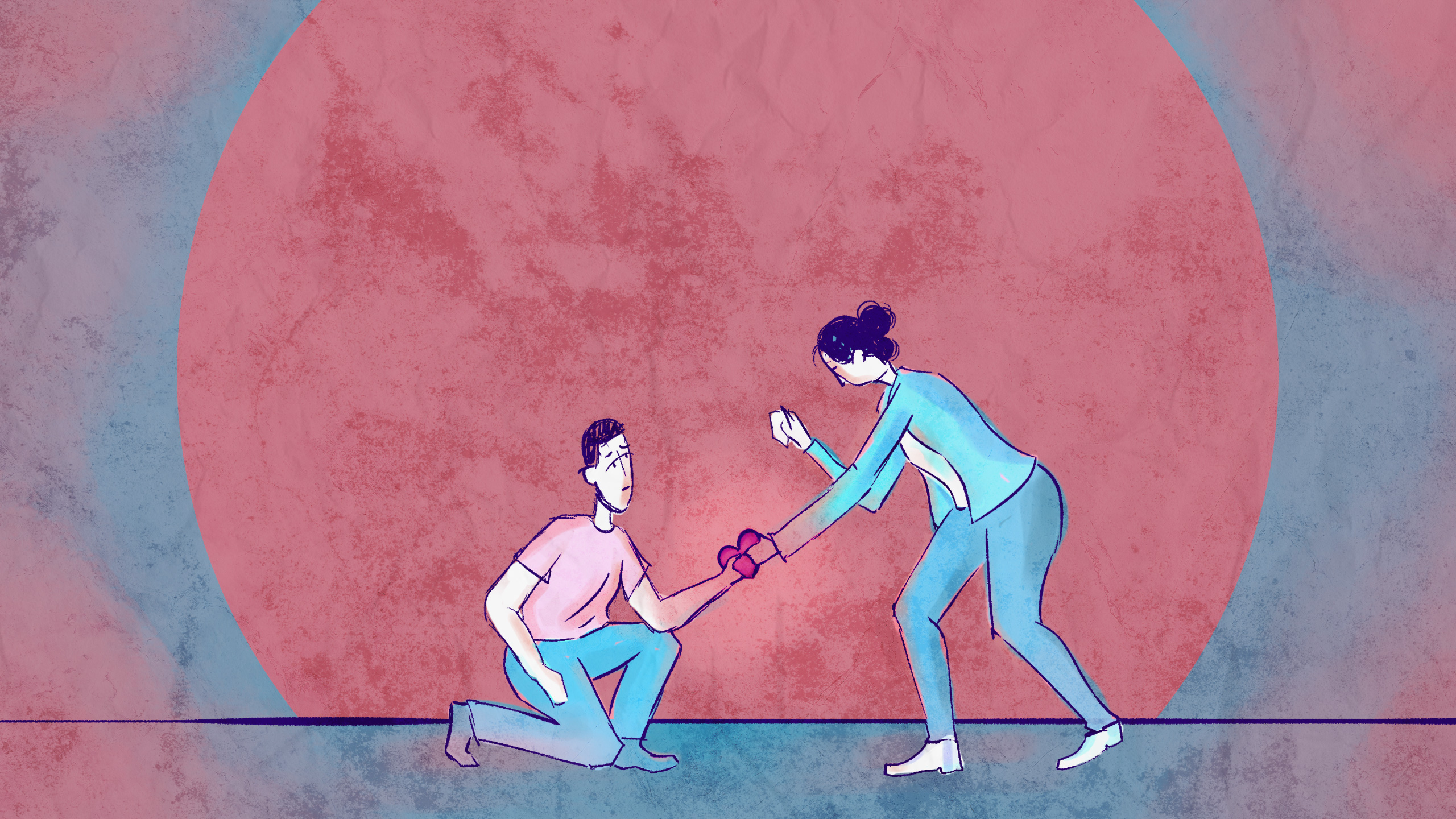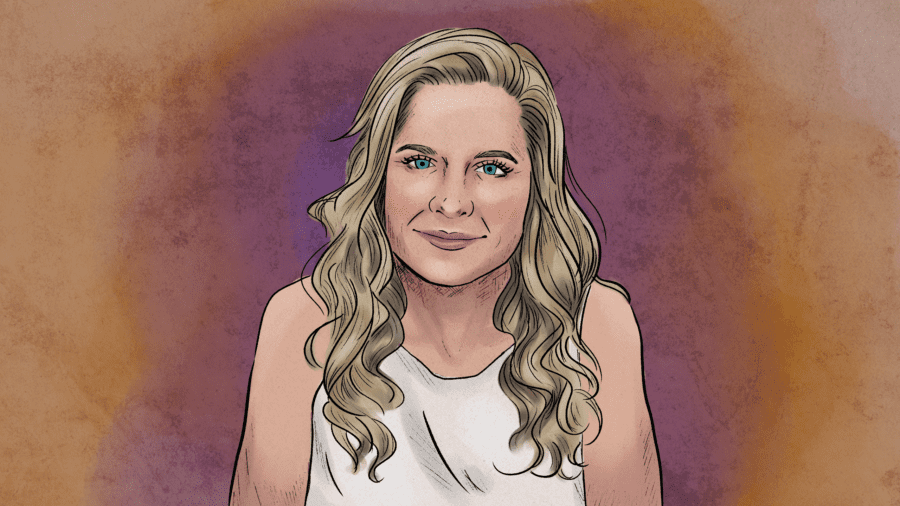
Apologizing 101: How to Apologize from the Heart & Mend Your Mistakes Without People Pleasing
I’m sorry.
These two words can have so much impact on the dynamics of our relationships with others. Whether it’s with our romantic partners, family, or friends, we all find ourselves in situations where we’ve made a mistake and have to take responsibility for it. Nine times out of ten, we need to apologize to the person we’ve wronged to strengthen our relationship with them.
But apologies are more than simply saying, “I’m sorry.”
When you can say, “I messed up,” and give an honest, heartfelt apology to another—that is the best way to take responsibility for your actions. But if you are simply going through the motions of saying the words to try and smooth things over but continue to make the same mistakes, you can break the trust of your partner, relative, or friend.
On the other hand, you can find yourself constantly saying you’re sorry for any inconveniences you feel you’ve inflicted on others. Needlessly or continuously apologizing for every little thing can result in grating on the other person and leading to other issues. You’ll find yourself walking on eggshells and being constantly afraid of upsetting your partner at any moment, and your sense of self-worth will diminish as a result. Your partner can wind up losing respect for you as they begin viewing you as a pushover or doormat, which can make them question why they’re in a relationship with you or, worse yet, start taking advantage of the situation and turn your relationship into a toxic one.
So how do you apologize to someone you love without falling into the trap of becoming a people pleaser? Welcome to Apologizing 101. Class is now in session, and we’ll teach you how to say sorry and correct your mistakes without sacrificing your self-worth!
Do You Need to Apologize?
The first step in learning how to apologize is to figure out if you really need to say you’re sorry in the first place. This is trickier than it would first appear, however.
You may feel like whatever you said or did wasn’t all that bad. Or maybe you feel as though you weren’t wrong but that the other person actually was. Regardless of where the fault lies in your opinion, it might be best to apologize anyway, and that doesn’t make you any less of a person.
“To preserve or re-establish connections with other people, you have to let go of concerns about right and wrong and try instead to understand the other person’s experience.” – Dr. Ronald Siegel, assistant professor of psychology at Harvard Medical School.
While saying you’re sorry for something you don’t feel you were in the wrong about might seem like people-pleasing, it’s actually an indicator of emotional intelligence, a key to good self-awareness. Apologizing by saying something like, “I’m sorry I caused you to feel that way” or “I’m sorry I upset you” can go a long way toward soothing the other’s anger without getting into the blame game.
The key to giving these types of apologies is to avoid performing simple lip service. You need to take care that you don’t sound patronizing when saying sorry like that. As long as you’re genuine in validating the other person’s viewpoint and feelings, your apology can help them let go of their anger and create better lines of communication between you.
Join In 200 Million+ On The Journey to Greatness
I Was Wrong, and I’m Sorry
When you’ve made a mistake and accept the responsibility for it, the act of effectively apologizing for it needs to be genuine. To make a genuine apology, you need not just to say you’re sorry but also to validate the other person’s feelings and acknowledge your actions.
The late psychiatrist Dr. Aaron Lazare was considered an expert in apologies and outlined four elements he deemed necessary for a good apology:
- Acknowledge the offense. The first step is taking responsibility for the offense and recognizing that it was not acceptable. Avoid using vague or evasive language or wording an apology in a way that minimizes the offense or questions whether the victim was hurt.
- Explain what happened. The challenge here is explaining how the offense occurred without excusing it. Sometimes it’s best to say there is no excuse.
- Express remorse. You need to say that you regret the error or feel ashamed of the issue. This is all part of expressing sincere remorse.
- Offer to make amends. For example, if you have damaged something of theirs, have it repaired or replaced. When the offense hurts someone’s feelings, acknowledge the pain and promise to be more sensitive in the future.
Following Dr. Lazare’s guidelines can help your apology be better received by the person affected. They can see that you’re accepting responsibility and get an idea of how the issue happened. They can also tell that you’re truly sorry and want to make things right by them. These things can prevent them from holding onto their anger toward you and help repair your relationship.
Be Authentic in Your Apology
Admitting fault and giving an authentic apology involves more than simply saying “I’m sorry” and even goes beyond the elements Dr. Lazare outlined. Clinical Psychologist Harriet Lerner, Ph.D. is a renowned relationship and apology expert who has written numerous books on both subjects. Dr. Lerner crafted her own set of Nine Rules for an Authentic Apology:
#1: Skip the Word “But”
I’m sorry, but… negates everything you said before the word, causing the person to whom you’re apologizing to no longer feel empathy from you. It can also make them feel as though you’re not taking their feelings seriously.
#2: Stay Focused on What You Did
Remember that everyone has their own perception of a situation. You don’t have to see yourself as wrong to need to make things right with another person. If you hurt them with something you said, you should be apologetic to them.
#3: Be Concise
You might be part of the apology, but that doesn’t mean it’s about you. You don’t need to say what a terrible person you are or how stupid you are for messing up. Doing these things makes it seem like you expect the other person to comfort you.
#4: Avoid Blame and Finger-Pointing
Assigning blame to whomever started the argument or disagreement leads to the apology losing value. Who triggered the problem doesn’t matter, and finger-pointing will only lead to further arguing.
#5: Take Corrective Action
Actions speak louder than words. Expressing remorse and then doing the same thing again the next day makes it harder for another to believe you in the future.
#6: Change Patterns
If you find yourself in a cycle of making the same mistakes and having to repeatedly apologize for them, make a conscious effort to break out of it and make a genuine change.
#7: An Apology Is the Beginning
Saying you’re sorry should start a conversation, not be used to finish one. Asking how you can make things right by the other person opens communication, and even if they don’t have a next step, genuinely listening and respecting their choice can rebuild trust.
#8: Be Considerate
Sometimes the one you wronged may not be ready to hear an apology. If you are making an apology to feel better and unburden yourself, you might want to give the other person some time and space.
#9: Is Sorry Enough?
Sometimes apologizing can repair a relationship, but there are also times when the damage could be irreversible. If the other person is unable to forgive you, respect their decision and accept that separation is necessary.
Keeping Dr. Lerner’s keys in mind can help you say you’re sorry in a meaningful way. Authentic apologies offer a way to mend relationships or even sever them if necessary.
Avoid Over Apologizing
It can be easy to fall into the trap of constantly apologizing if you’re not careful. What may seem like being nice or responsible in your mind can make you come across as fake, unassertive, or showing weakness to others. It can also make people question the sincerity of your remorse if you apologize all of the time.
No one is perfect, and we all make mistakes. Bumping into someone doesn’t require you to tell the person how clumsy and terrible you are. A simple, “Sorry!” is more than enough. By the same token, if you forgot to take the trash out and your partner gets annoyed by it, you don’t have to apologize as though you insulted their mother or said something hurtful or insulting to them.
Everyone wants to be liked, and this can lead some to become people pleasers. But trying too hard to be what you think others want you to be can lead to losing your sense of self. It can also cause others to take advantage and walk all over you because you’ll do anything to keep them as a part of your life. This can diminish your self-esteem and be damaging to your mental health.
People-pleasing doesn’t just mean saying you’re sorry when you’re not at fault, either. Accepting insincere or half-hearted apologies from others when they’ve wronged you is a sign that you might be a people-pleaser, too. It’s important to validate how your mistakes have made someone else feel, and the same is true of your feelings.
Forgive Yourself, and Others Will, Too
While we all make mistakes, we apologize to show remorse and be forgiven by the person we let down. However, we don’t necessarily forgive ourselves so easily. Who hasn’t spent lengths of time replaying situations in our minds and felt guilt long after having our apology accepted?
We all tend to be our own harshest critics, and changing that mindset is a challenge. Shaka Senghor shares his insights into finding self-forgiveness and changing your life’s narrative here.
Check out our article at Greatness to learn how to let go of bitterness and be more forgiving.
Class dismissed!
Greatness Authors
Greatness Authors is a collection of writers, thinkers, curiosity experts, and students of the world who are committed to bringing you the most up-to-date, impactful, and inspiring information surrounding Greatness topics.

Redefining Poetry: How Instagram Sensation Rupi Kaur Showed That Poetry Is for Everyone

The 7 Best Vitamins to Naturally Promote Better, Uninterrupted Sleep According to Shawn Stevenson

The Science of Forming Healthy Habits & Letting Go of Bad Ones, According to Author James Clear

9 Signs You Have Imposter Syndrome at Work and How to Overcome Performance Insecurity

Olympian Yusra Mardini’s Incredible Story of Resilience, Rescue, and Refugee Rights










